Startup Founder Jane Mosbacher Morris on the Power of Your Purchases
March 08, 2019 | Filed in: Woman of the Week
As part of the State Department’s counterterrorism team, Jane Mosbacher Morris spent the early part of her career traveling the world. On the road, she began to see how empowering women in local communities could create change in many areas, including national security and economic development. She eventually left government to launch her own company, To the Market, which connects ethical and nontraditional suppliers around the world with U.S. retailers, who can bring the products to a larger audience. Her new book, Buy the Change You Want to See, explores how consumers can harness their purchasing power to do good. Here, she chats with us about practicing the golden rule at work, writing her future bio, and the magic of color-coded calendars.
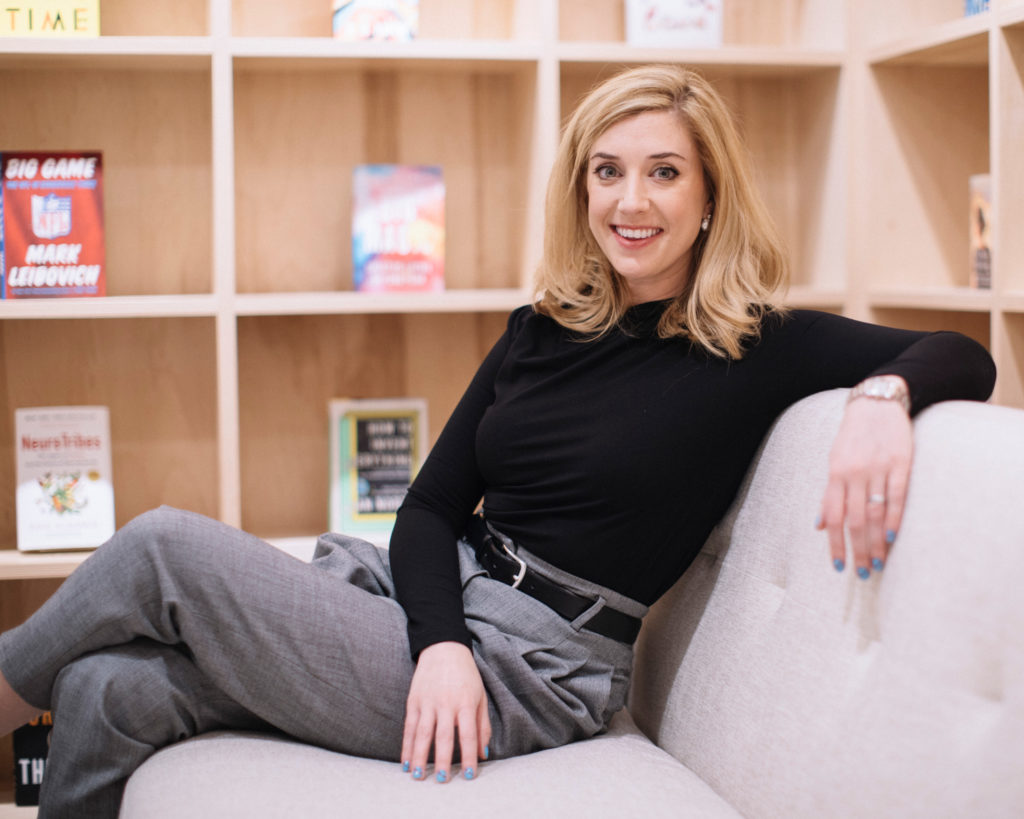
Jane wears the Octavia top, the Costello pant, and the Wide Strap belt.
I WAS IN HIGH SCHOOL WHEN 9/11 HAPPENED, and it made a big impression on me. I ended up going to Georgetown’s School of Foreign Service and focusing on national security. In my junior year, I worked as an intern at the State Department. I was so in love with the job that I immediately started asking to be hired. I think they offered it to me just so I would stop asking. Squeaky wheel!
I WORKED ON COUNTER-TERRORISM for five years, and I spent a lot of time overseas. I focused on the role of women in helping to identify, fight, and prevent terrorism. In talking to many women, I got a new perspective on what allowed them to have (or prevented them from having) influence in their communities. Most often, they didn’t have much influence, and that’s because they didn’t control much money. So I set out to learn how to create and sustain jobs that would allow women more access to money—and ultimately, give them more power and influence.
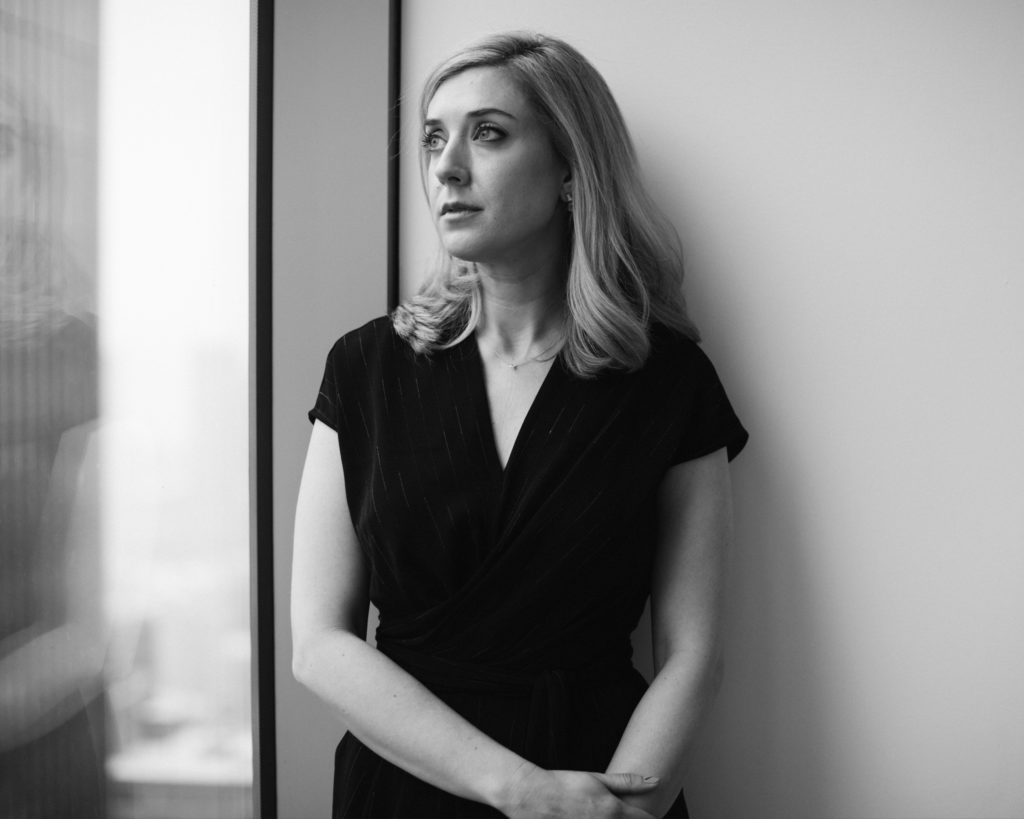
Jane wears the Noel dress.
I PURSUED MY MBA at Columbia, but I commuted to New York because I was still working for the State Department. By then, I had joined the Office of Global Women’s Issues under Secretary Hillary Clinton, and many of the women I was in contact with worked in retail—making their products at home or in a workshop. I began to noodle on a business idea that would somehow connect suppliers around the world to U.S.-based brands, retailers, and corporations. At first, I didn’t have a clear sense of what the revenue model was or how it would scale. I did a lot of reflecting and researching, and it took me four years to figure out how my idea for To the Market would work.
THERE ARE SO MANY UPS AND DOWNS when you’re starting a business. I remember one time when we had a shipping issue, my tiny team had to hand-deliver boxes to a client in New York. It was during the holiday rush, and I started crossing the street. Suddenly, my arms gave out, and the box I was carrying exploded in the middle of the street. It felt so symbolic of how much stress I was carrying at that point.
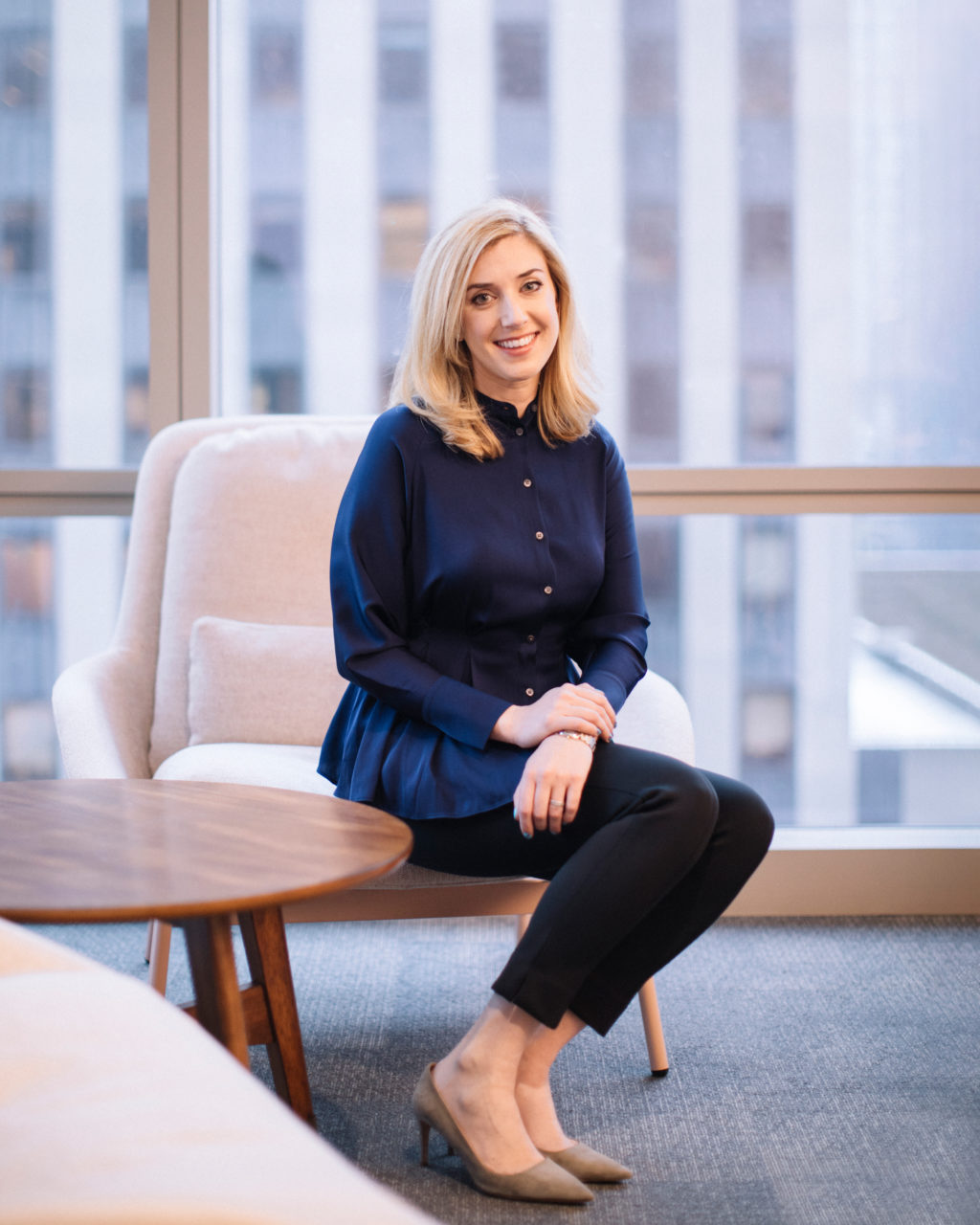
Jane wears the Sontag top and the Shaw pant.
I GREW UP IN A HOUSEHOLD WHERE THE GOLDEN RULE was strictly enforced. Kindness is critical in everything I do, and it’s an important trait in the people I hire. Kind does not mean weak and it does not mean stupid. It means that we are all working towards a common goal, and we’re treating each other with respect and warmth, even when it’s hard. Kindly managing both up and down has always served me in my career. I have no doubt that many people have done huge favors for me not because they think I’m smart, but because they think I’m nice. The professional world is small, and everything comes back around.
I’M A BIG-TIME PLANNER. For the past decade, I’ve been doing an exercise where I write future bios for myself, which is a way of visualizing where I want to go. It’s not necessarily like, “By 2024, I will have won the following awards.” It’s more like, between now and 2024, what do I want to say I’ve accomplished? Who do I want to become? I write the biography as though I’ve already accomplished those things, and it helps me feel they’re possible. It also brings clarity. What am I working towards?
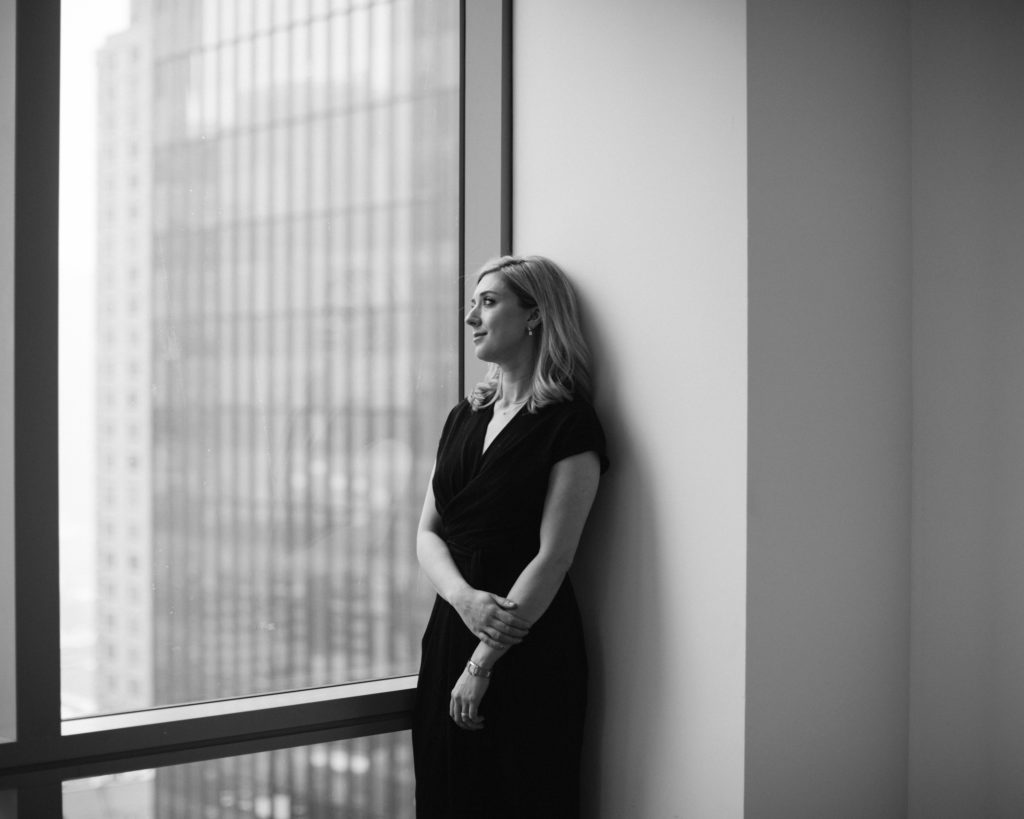
Jane wears the Noel dress and the Vanderbilt earrings.
I GIVE MYSELF A BIG FAT “F” on self-care. It’s so hard for me to take time for myself right now, but I try to prioritize sleep and get seven hours a night—that’s non-negotiable. I also try to stay organized at work. I’m a big list-maker, and I have an insanely detailed calendar that is available to my entire team. I’m totally transparent with how I spend my time, whether I’m getting a blow-out or doing a sales call. I also color code my calendar so I can get a quick idea of how I’m spending my day: 10% on investor relations, 10% on book stuff, etc. This makes me sound like a psycho, but having these systems in place reduces my anxiety.
I’VE ALWAYS LOVED CLOTHES. Even when I was little, I loved putting together outfits—my favorite was a Little Mermaid bathing suit with a tutu and Minnie Mouse stockings. Now, my style shifts depending on where I am. The work environment was much more traditional when I worked in government in D.C., so my wardrobe consisted of chic dresses, pencil skirts, and heels every day. Now that I’m at a startup, my uniform is jeans, a fitted tee, and a great-looking blazer. Context is important: When I was in meetings talking about terrorist organizations, I knew I wouldn’t be taken seriously if I showed up in cropped jeans and a tee-shirt. And now that I work in retail, I’m more casual but still mindful of the impression I’m giving.
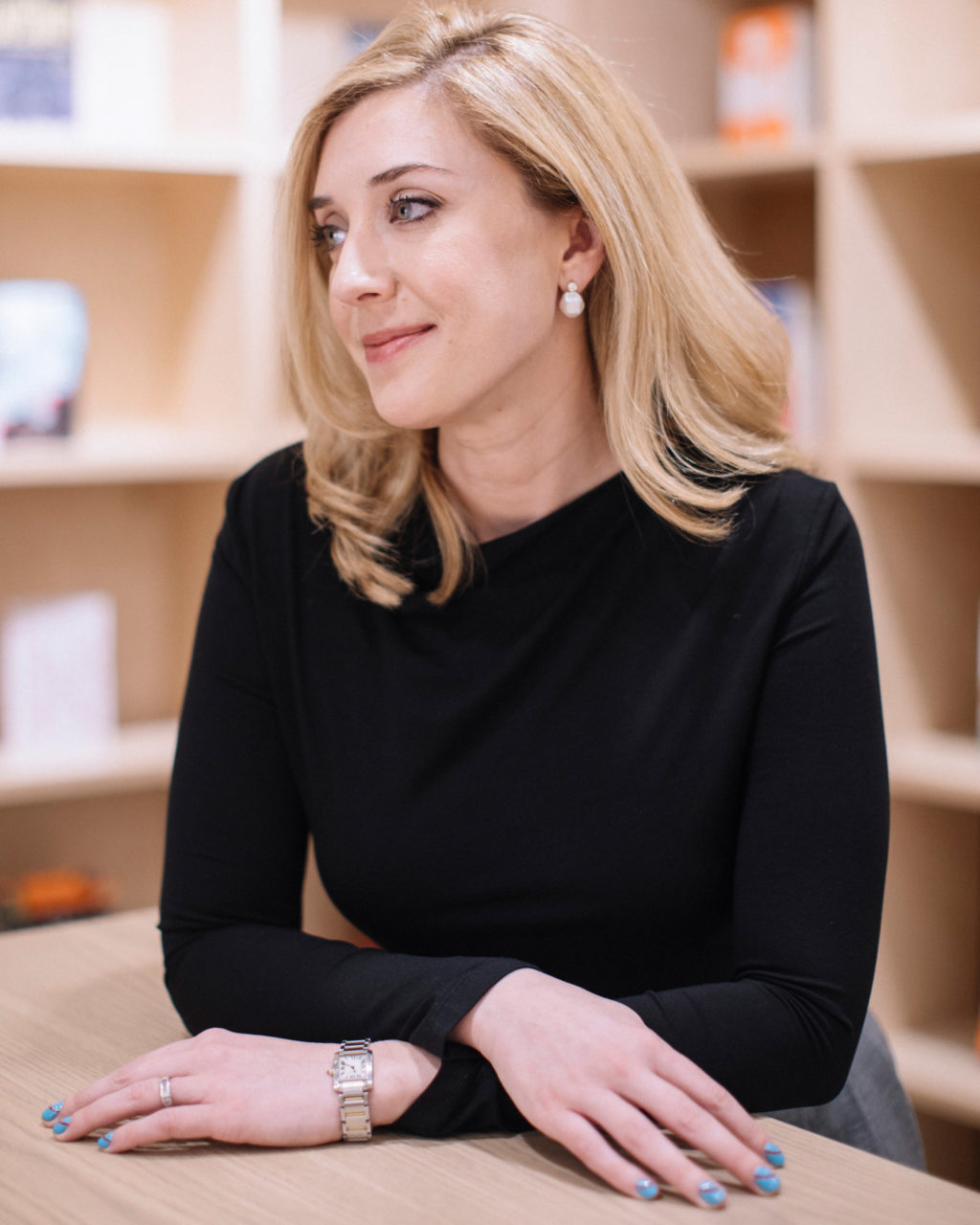
Jane wears the Octavia top and the Capri earrings.
IF YOU HAD TOLD ME when I was in high school that I would one day start a retail business, I don’t know whether I would have laughed or cried—but definitely one of those. My career has taken an unexpected turn with To the Market, but I feel I’m exactly where I’m supposed to be. I remember when we did our first order for Macy’s, which was a relatively modest order, but we tracked it and realized it went a long way to paying school fees for artisans’ children and covering the costs of water (which is not free in many parts of the world). Seeing how our supply chain can impact people’s quality of life is very exciting to me. I also love educating American consumers about the difference they can make when they align their purchasing decision with their values. You get to vote every single day with your wallet. Shopping can be a powerful political or humanitarian act when you spend money with companies that make a positive impact on communities around the world.
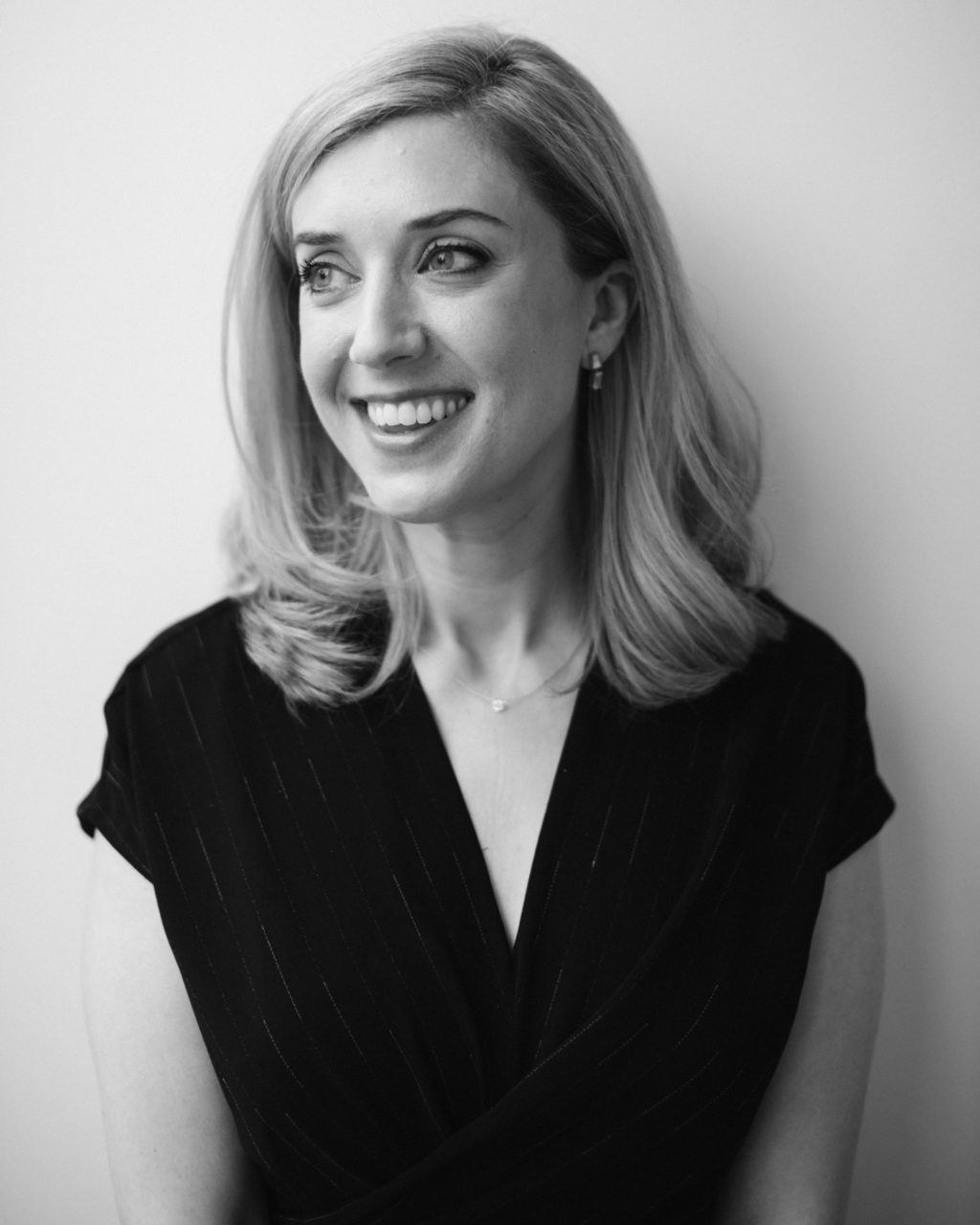
Jane wears the Noel dress and the Vanderbilt earrings.
Photographs by Rich Gilligan. Styling by Nyjerah Cunningham.





